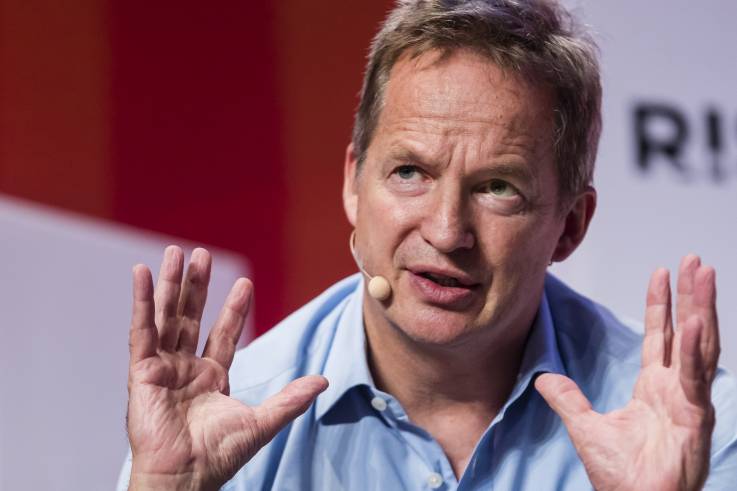Cathay Ceo refuses to name Hong Kong protesters and resigns
 |
Rupert Hogg, shown here at the RISE Conference 2018, resigned on August 16 rather than identify employees who took part in a strike earlier this month. YU CHUN CHRISTOPHER WONG/S3STUDIO/GETTY
China's Civil Aviation Administration ordered Cathay on August 9 to provide a list of employees who were involved in a recent protest. He was also ordered to suspend the employees. Hogg provided the list—but it only included one name: Hogg's.
Hogg resigned shortly thereafter, however many believe his resignation was due to pressure from China. His resignation was first announced by CCTV, China's state-run television station, 30 minutes before Cathay Pacific announced Hogg had stepped down.
His resignation was widely praised by supporters of the protests in Hong Kong. Taiwanese Democratic Progressive Party member Wang Ting-yu wrote on Facebook that he considered Hogg a hero.
"He took responsibility for the strike and resigned! He didn't sell out any Cathay Pacific employees! He took responsibility himself! Please remember the name of this gentleman. Mr. Rupert Hogg! I salute you!" Wang wrote, according to a translation provided by Taiwan News.
In the face of Hogg's support online, the Chinese government is claiming that it had Hogg fired, according to the International Business Times. China is the second largest shareholder of Cathay Pacific through the state-owned airline Air China Ltd.
On August 5, aviation workers went on strike, forcing airlines to cancel hundreds of flights. At a press conference that week, Cathay chairman John Solsar said the company's employees had the right to believe what they wanted.
"We certainly wouldn't dream of telling them what they have to think about something. They're all adults, they're all service professionals. We respect them greatly," Solsar said.
The protests are over an extradition bill proposed by Hong Kong's government. The bill would allow Hong Kong authorities to arrest, detain and extradite people wanted in territories Hong Kong doesn't have extradition agreements with—including mainland China and Taiwan. Critics claim the bill will undermine Hong Kong's autonomy as well as infringe upon citizens' rights. The protests started on June 12, and have continued for the past 11 weeks./.
VNF/Newsweek
Recommended
 Economy
Economy



